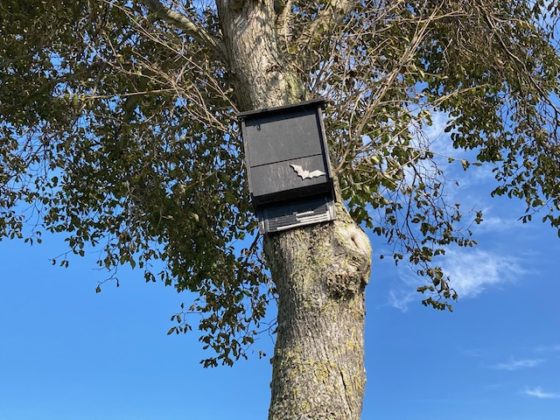Highest Dutch court studies bats versus wall insulation


Sustainability and the legal obligation to protect bats are being pitted against each other in front of the Netherlands’ highest administrative court, NU.nl reported this week.
The case centres on an insulation company in Utrecht which, local officials say, did not do enough to check for bats before installing cavity wall insulation.
Bats are a protected species but very little is being done to keep them safe from the ‘rampant insulation cowboy practices of the last 10 to 15 years’, bat research foundation SEVON said.
Bats are protected by law, and that means cavity walls and roofs have to be checked for their presence before they can be insulated. Builders usually insert a camera into a wall for a look round, but, ecologists say, that is not enough to exclude the possibility of bats having made their home there.
Instead, they argue, an ecologist will have to drafted in to ascertain their presence or use of the wall and that means bat activity has to be observed over many months.
Despite the process being costly and long, Utrecht regional environment watchdog RUD has said the rules regarding the protection of bats have to be upheld and fined one insulation company for failing to do a proper job.
After various appeals the case is now before the Raad van State which took the unusual step of drafting in external expertise to weigh the interests of both making homes more sustainable and protecting the bat population.
One solution proposed by the insolation industry is to make insulation ‘nature free’. That would include providing bats with a flap that would let them leave the wall but not return. Once all the bats have left, the insulation process can begin. As compensation boxes would be provided to home the bats.
Warmth
However, ecologists are sceptical about the boxes. ‘Will they be warm enough to raise young bats in? We’re not sure. I also doubt the flaps will guarantee all the bats have left,’ Herman Limpens from the Dutch mammal association Zoogdiervereniging told Nu.nl.
Limpens said that the bats could halt the insulation of houses altogether. ‘But we don’t think that’s the way forward. We just need better ways of protecting the bats when insulating homes’.
To do this local councils will have to chart important bat roosting places and homes that are being used by them so insulation companies can act accordingly. ‘Everyone is in favour of energy transition,’ Limpens said, ‘but we have to act, not to stop it, but to guide it in the right direction.’
Thank you for donating to DutchNews.nl.
We could not provide the Dutch News service, and keep it free of charge, without the generous support of our readers. Your donations allow us to report on issues you tell us matter, and provide you with a summary of the most important Dutch news each day.
Make a donation